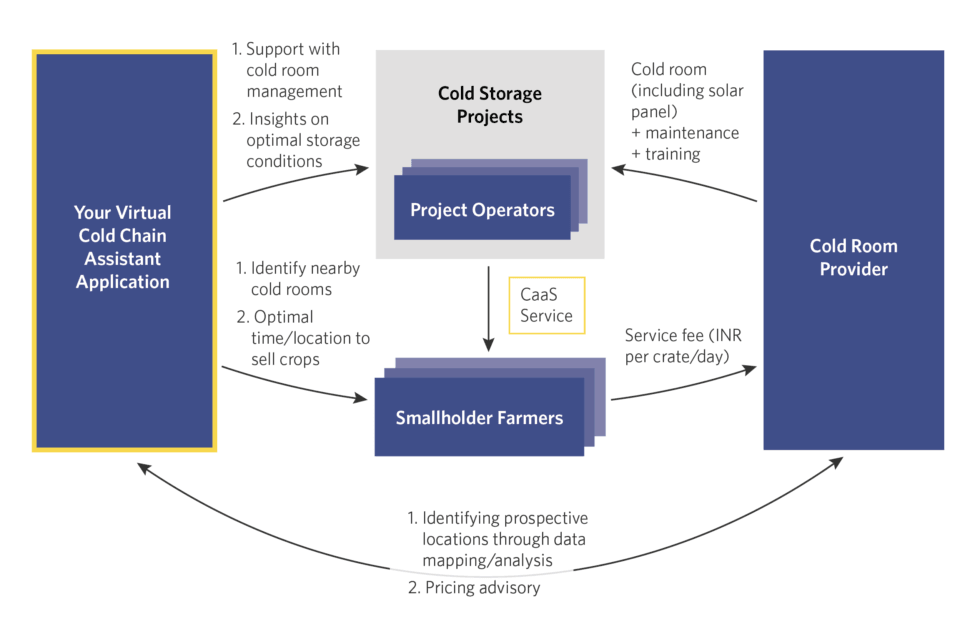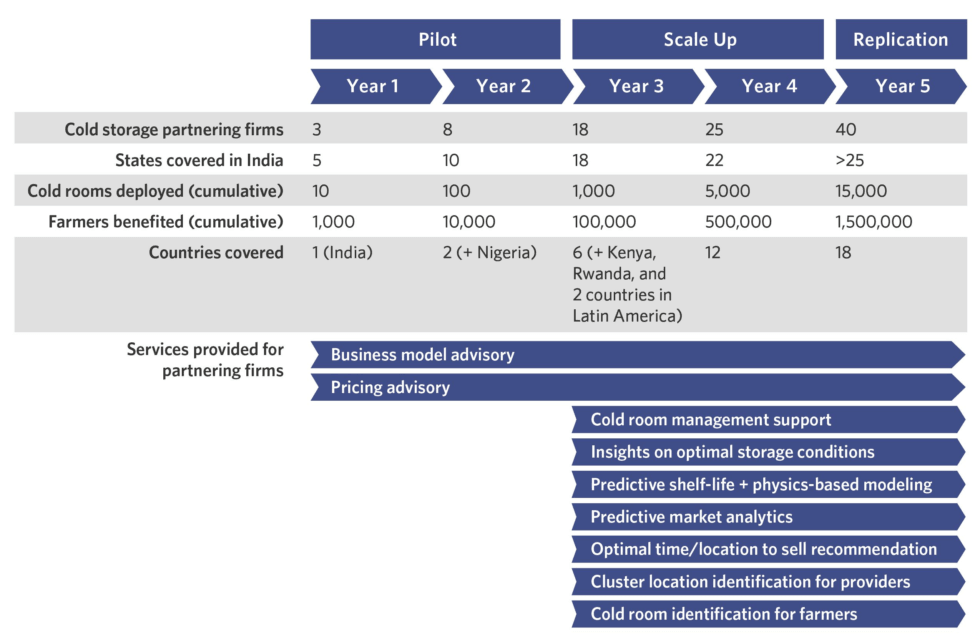More than 40% of food produced in India is wasted—cumulatively at the farm, transport, and retail level—before it reaches the customer (FAO Food Waste Index, 2021). One way to address the problem at the farm level is that farmers, especially smallholder farmers, are given access to efficient and clean cold storage solutions at affordable prices so that they can reduce food losses and sell products when market prices are more conducive.
Such a step would not only enhance India’s food and water security but would also be in line with the Government of India’s efforts at doubling farmer incomes. Our analysis suggests that farmer revenues can increase by more than 35% with the help of cold storage. Moreover, deploying clean and efficient cooling solutions, rather than those that use grid power, would also be in line with the targets set under the National Action Cooling Plan in 2019, as part of which India plans to reduce cooling energy requirements 25- 40% by 2037-38 (IEA, 2021).
To better address food waste at the farm level, farmers—especially smallholder farmers—need access to efficient and clean cold storage solutions at affordable pricing.
DESIGN & REPLICATION
CaaS will ensure smallholder farmers make decisions on cooling based on lifecycle benefits, rather than upfront costs.
CaaS is a solution that entails open access, a data-science-based mobile application that uses machine learning, and physics-based food modeling to enable smallholder farmers to access sustainable cooling facilities through servitization. The app, called ‘Your Virtual Cold Chain Assistant’ (Your VCCA), offers a number of features for smallholder farmers, cold room service providers, as well as cold room operators.
The objective of CaaS with VCCA is to enable smallholders to gain access to cooling without upfront costs; have access to easy-to-use information so that they can make optimal decisions on produce and farm management and thus break the negative cycle of poverty – while also improving food security and minimizing the impact of food production on global climate.
IMPACT
For a grid-connected, solar-powered cold room, the project and equity returns can exceed 27% and 43% respectively, assuming service providers can realize revenues of INR 0.5/kg/day and an annualized capacity utilization of 50%.
Within four years, CaaS with VCCA can benefit 1.5 million farmers, abate 100,000 units of CO2, and mobilize USD 200 million into decentralized cold room projects.
IMPLEMENTATION PATHWAY
CaaS with VCCA will pilot in India during 2021-2022, demonstrating the economic viability of the CaaS business model and the value add of the VCCA app.
CaaS with VCCA will pilot in two Indian states, Bihar and Himachal Pradesh, during 2021-2022, after which the proponents will expand partnerships, enhance service offerings, and enter new regions. The pilot will serve to demonstrate the economic viability of the CaaS business model and the value-add of the VCCA app.
Know more: Cooling as a Service (2019)



